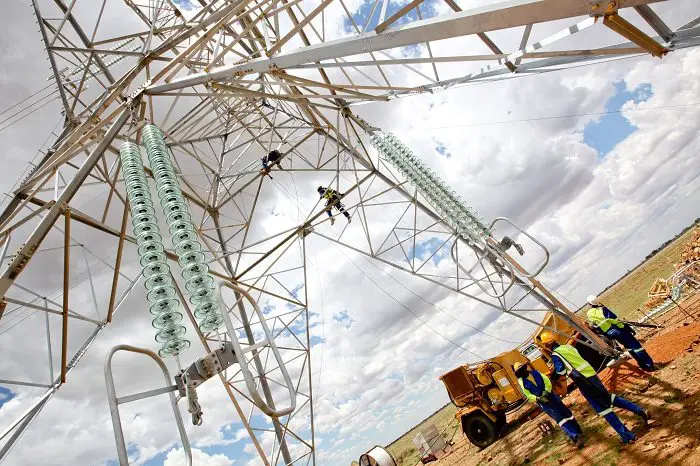Building ‘highways’ for power is keeping Babcock at the fore of power transmission as its powerlines manufacturing facility reaches full single shift production capacity, a position that the company expects to continue for the remainder of 2016 and into next year.
This follows a long-term strategy introduced by the organisation four years ago to reposition Babcock as a market leader in the African power transmission sector.
Gary Whalley, Babcock’s Managing Director – Power says the factory is looking robust, while their projects department has four major contracts currently on its books. He expands on the business’s current schedule, their newly awarded projects and why Babcock was recently acknowledged by Eskom as being one of their preferred and trusted suppliers.
Whalley says that the construction order book has delivered good volumes to the tower manufacturing section and the recently secured Eskom National Contract for hardware manufacture and supply has resulted in the company being at optimal single shift factory production capacity.
Babcock’s scope of work for the four contracts includes full foundation engineering, manufacturing, testing, project management and construction of high voltage overhead transmission lines, along with foundation installation, tower manufacture, assembly, erection and dressing and tension stringing.
The transmission lines will be used to reinforce the Eskom transmission grid and integrate Medupi and Kusile power station into the national grid.
“Earlier this year we were awarded sections A and B of the Ferrum-Nieuwehoop project for a 260 km 400 kV line.
The project is significant as it is the longest transmission line awarded to a single contractor since the mid-1980s, and it provided Babcock the opportunity to roll out new foundation technology that we developed on a previous project with Eskom,” says Whalley. “We are very satisfied with the progress and are running ahead of schedule,” he adds.
He explains that in order to be more competitive in foundation work, Babcock developed a single micro-piled anchor that can be drilled into the ground with minimal surface damage and environmental impact. This sophisticated mechanism is quicker to install, ultimately transferring time and cost savings onto the client.
“The increased order book has provided economies of scale that have allowed for competitive pricing when bidding on other projects, including the recently awarded section A of the Kendal-Zeus/Kusile-Zeus 400 kV transmission line that will integrate Kusile power station into the national grid,” continues Whalley.
The 76 km 400 kV Kusile transmission line is supported by 201 towers that are heavier than average owing to the deviations of the complex line route which navigates a congested farming area, with a combined tower weight totalling approximately 2 900 tonnes.
The other contract that Babcock is in the process of rolling out falls under the Masa-Ngwedi 400 kV and 765 kV scheme, a 21-month contract to build two portions of the Masa-Ngwedi line that reinforce the link of Medupi power station to the national grid.
The two transmission lines are 765 kV and 400 kV respectively, each 80 kilometres in length and requiring approximately 5 400 tonnes of tower steel. Whalley adds that Babcock was also contracted in the first phase of the Medupi project and was awarded the new contract through a competitive bidding process.
“As the second largest transmission line player by value of contracts won, and the largest if you go by kilometres of lines to be built, Babcock is well positioned in the southern African power transmission sector,” says Whalley.
“Besides our proven track record, we have the added advantage of being able to offer customers equipment hire from our plant services business and Babcock cranes to lift the towers once they have been assembled on the ground.
A large percentage of high voltage powerlines in southern Africa has been built by Babcock who has successfully delivered projects from 66 kV to 765 kV since 1954 and today offers full turnkey engineering, manufacturing, testing, project management and construction of high voltage overhead transmission lines.
Babcock’s powerlines business is an EPC turnkey transmission line contractor, vertically integrated to be able to manufacture and supply steel lattice structures, substations and line hardware.
Babcock continues to be a leader in the power industry, trusted to deliver major network infrastructure projects safely, on time and within budget throughout the African continent

Leave a Reply